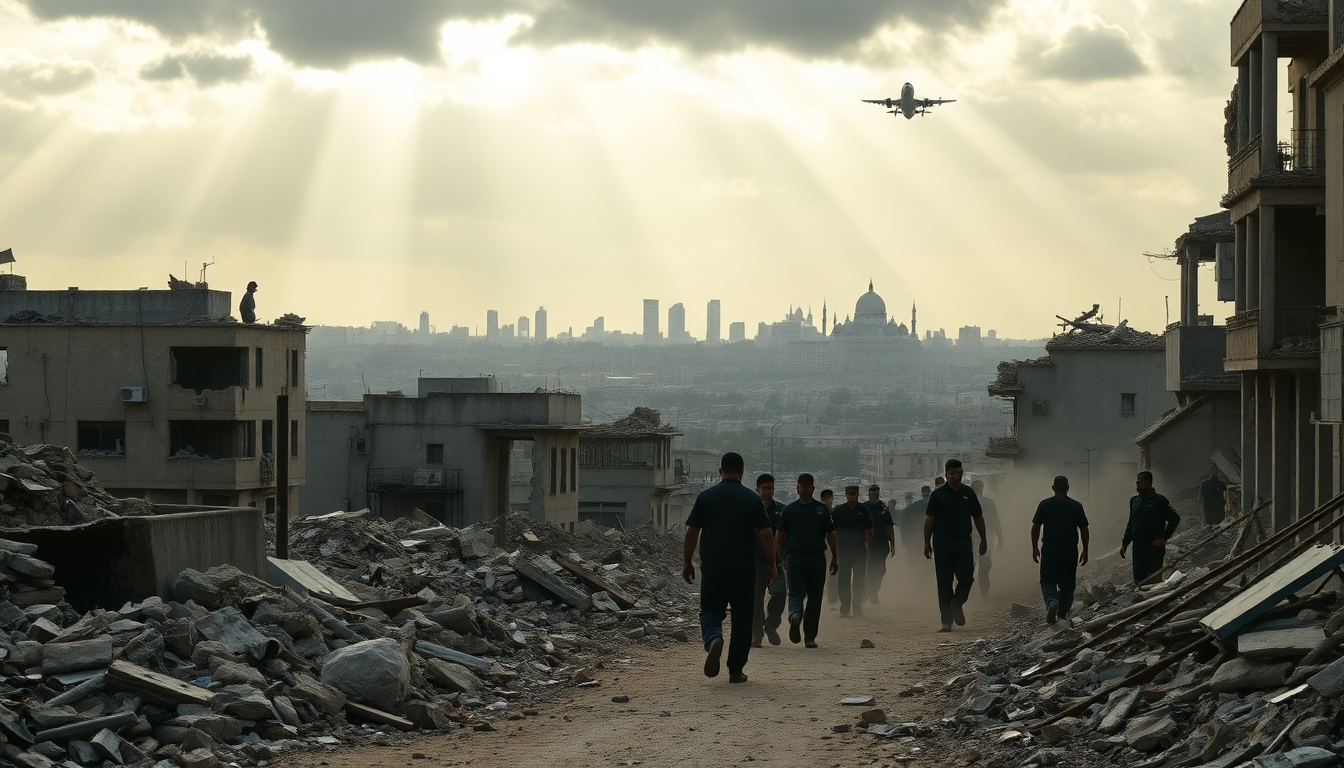Table of Contents
The ongoing conflict in Gaza is at a critical tipping point, with Israel’s recent decision to ramp up military operations in Gaza City sparking intense international backlash. This move, greenlit by Israel’s security cabinet, has raised red flags among global leaders who are deeply concerned about the potential humanitarian fallout.
It highlights the urgent need to closely examine the consequences of military actions in areas packed with civilians, especially given the already devastating humanitarian crisis unfolding there.
Global Reactions to Israel’s Military Plans
On Friday, Prime Minister Benjamin Netanyahu announced Israel’s aim to take military control of the entire Gaza Strip, a declaration that has ignited outrage across the globe.
Volker Turk, the UN’s human rights chief, called for an immediate halt to this military takeover, pointing out that it contradicts the International Court of Justice’s ruling which emphasizes the necessity for Israel to end its occupation. His statement reflects a growing concern that escalating military actions will only worsen the ongoing humanitarian disaster.
In the UK, Prime Minister Keir Starmer labeled Israel’s decision as “wrong,” urging a reconsideration of their aggressive military strategy. He stressed that escalating the conflict would do nothing to resolve hostilities or aid in the release of hostages; instead, it would likely lead to more bloodshed.
This sentiment resonates with leaders around the world who are advocating for a return to dialogue and peaceful conflict resolution. Isn’t it time we prioritize conversation over confrontation?
Humanitarian Implications Amid Escalating Tensions
The humanitarian situation in Gaza is already dire, with widespread displacement and an impending hunger crisis.
Israel’s proposed military takeover is set to exacerbate these issues, potentially displacing thousands more and deepening the existing crisis. Nations like Turkiye and China are calling for urgent action to prevent what they describe as a calculated effort to forcibly displace the Palestinian population.
How many more lives must be disrupted before we take action?
Turkiye’s foreign ministry has urged global leaders to step in, highlighting the moral responsibility to stop the displacement of Palestinians from their land. Similarly, China has voiced serious concerns about Israel’s intentions, insisting that Gaza is an inseparable part of Palestinian territory and advocating for an immediate ceasefire to alleviate the pressing humanitarian crisis. Can we afford to ignore these calls for help?
Calls for Ceasefire and International Intervention
Countries such as Australia and Finland have joined the chorus advocating for an immediate ceasefire. Australia’s Foreign Minister Penny Wong reiterated the necessity of halting military actions, stressing the importance of returning hostages and allowing humanitarian aid to flow freely into Gaza. Meanwhile, Finland’s Foreign Minister Elina Valtonen warned of the risk of famine as conditions worsen, calling for urgent humanitarian assistance and a ceasefire to protect civilians. Isn’t it time we prioritize the safety of innocent lives?
Moreover, within Israel, opposition leader Yair Lapid criticized the decision to escalate military operations, deeming it a disaster that could have long-lasting repercussions. His comments reflect a growing internal dissent against the current government’s strategy, suggesting that even within Israel, there is a recognition of the need for a more measured approach to the conflict. Could this be the moment for a shift in perspective?
Conclusion: A Call for Diplomacy and Humanitarian Support
The escalating situation in Gaza presents a complex challenge that demands careful consideration from both local and international actors. The worldwide outcry against Israel’s military plans underscores an urgent need for a diplomatic resolution that prioritizes humanitarian needs and seeks to protect civilian lives. As the situation unfolds, our focus must remain on finding sustainable solutions that respect the rights and dignity of all affected populations, ensuring that humanitarian aid reaches those in desperate need. How can we collectively move towards a future where compassion and understanding prevail?





